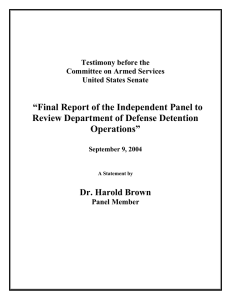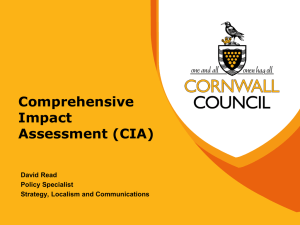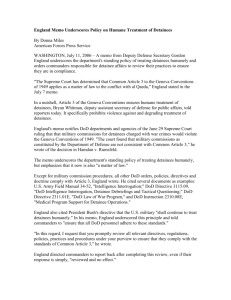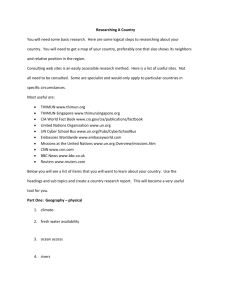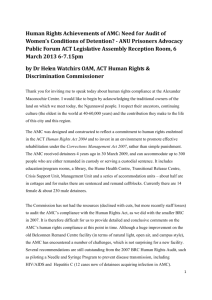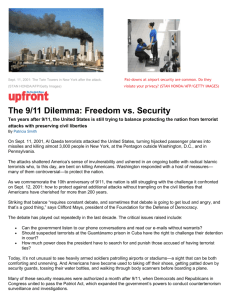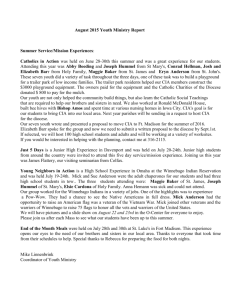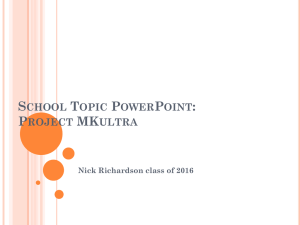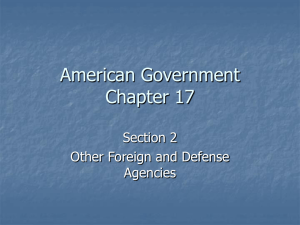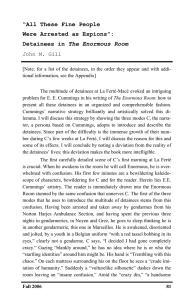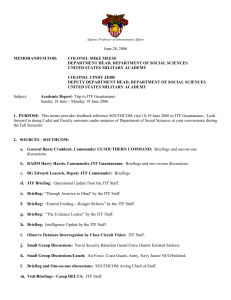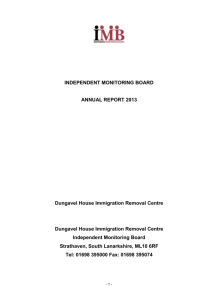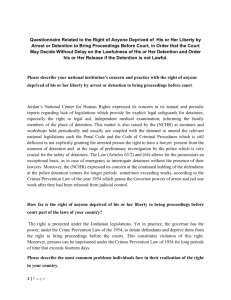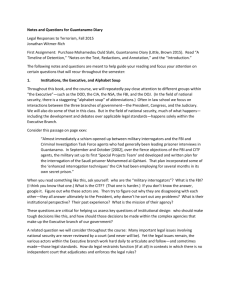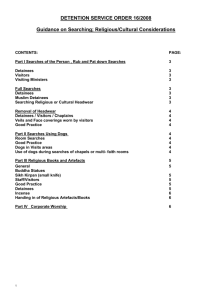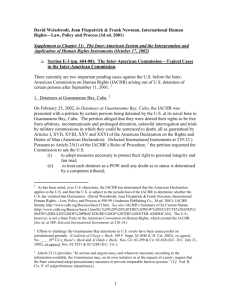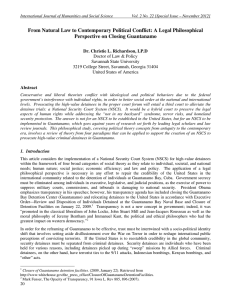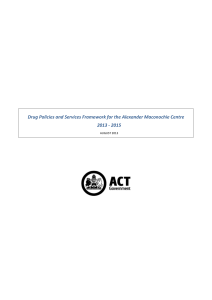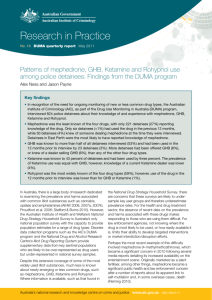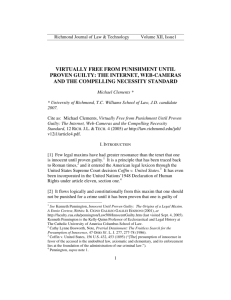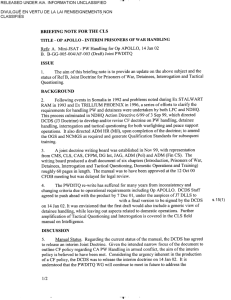A War Gone Wrong We learn as kids growing up that history repeats
advertisement
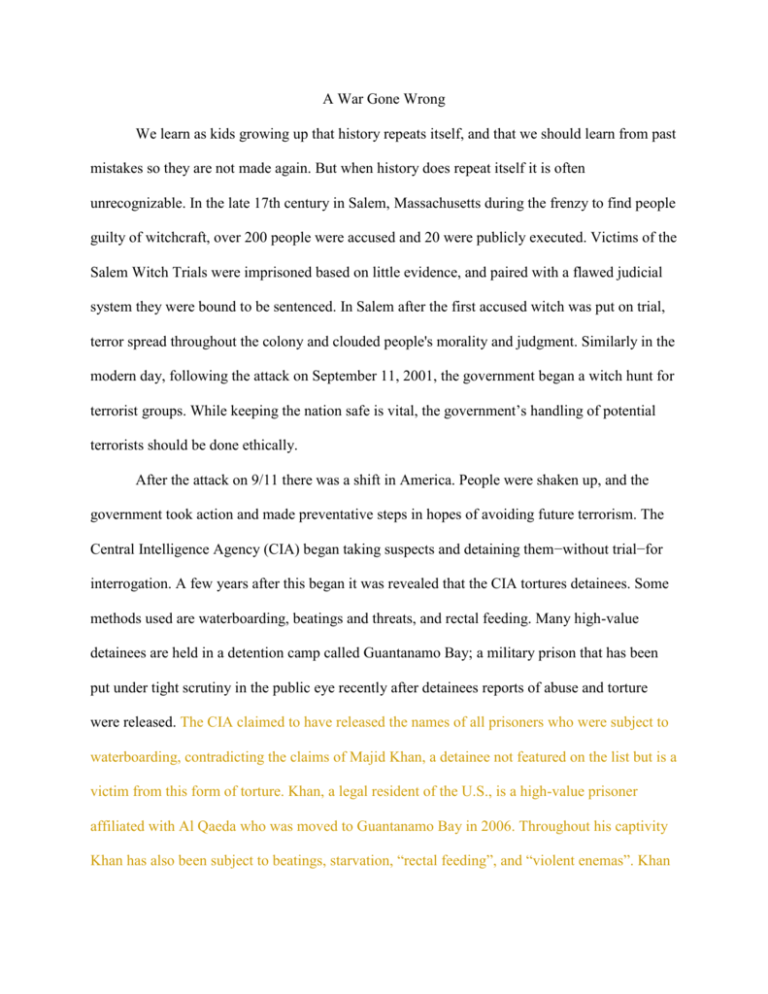
A War Gone Wrong We learn as kids growing up that history repeats itself, and that we should learn from past mistakes so they are not made again. But when history does repeat itself it is often unrecognizable. In the late 17th century in Salem, Massachusetts during the frenzy to find people guilty of witchcraft, over 200 people were accused and 20 were publicly executed. Victims of the Salem Witch Trials were imprisoned based on little evidence, and paired with a flawed judicial system they were bound to be sentenced. In Salem after the first accused witch was put on trial, terror spread throughout the colony and clouded people's morality and judgment. Similarly in the modern day, following the attack on September 11, 2001, the government began a witch hunt for terrorist groups. While keeping the nation safe is vital, the government’s handling of potential terrorists should be done ethically. After the attack on 9/11 there was a shift in America. People were shaken up, and the government took action and made preventative steps in hopes of avoiding future terrorism. The Central Intelligence Agency (CIA) began taking suspects and detaining them−without trial−for interrogation. A few years after this began it was revealed that the CIA tortures detainees. Some methods used are waterboarding, beatings and threats, and rectal feeding. Many high-value detainees are held in a detention camp called Guantanamo Bay; a military prison that has been put under tight scrutiny in the public eye recently after detainees reports of abuse and torture were released. The CIA claimed to have released the names of all prisoners who were subject to waterboarding, contradicting the claims of Majid Khan, a detainee not featured on the list but is a victim from this form of torture. Khan, a legal resident of the U.S., is a high-value prisoner affiliated with Al Qaeda who was moved to Guantanamo Bay in 2006. Throughout his captivity Khan has also been subject to beatings, starvation, “rectal feeding”, and “violent enemas”. Khan has pleaded guilty to murder, conspiracy, and to supporting terrorism. However, Khan’s transgressions do not justify the depraved treatment that he, along with other detainees, have suffered at the mercy of the United States in direct violation of the federal law. The CIA’s torture of suspected terrorists is an ethical violation of human rights Many of the detainees do not have legal holding; they are often kidnapped and held indefinitely in unknown CIA operating sites without any trial−the detainees families do not even know their whereabouts−which is judicial injustice. In four U.S. Supreme Court cases it was decided that international law still applies to Guantanamo detainees. This means that they cannot be held indefinitely without a trial and the writ of Habeas Corpus still protects them; yet Congress and the executive branch have found a loophole from the court’s decision through policies. Legally the CIA’s actions are deemed right, but morally they are wrong. Human beings, no matter how good or evil, should all be treated equally. I think the CIA’s treatment of prisoners is unethical and inhumane and a direct violation of a Supreme Court ruling. Congress should not be able to sneak around the judiciary branch so easily; our Founding Fathers created three branches with the idea that one should not overpower the other. In addition to unethical legislative and executive actions, the CIA’s unethical treatment of detainees violate basic human rights. According to a report from the Institute on Medicine as a Profession, psychologists designed and participated in cruel, degrading, and inhumane torture and treatment of detainees ("Ethics Abandoned" 78). Many detainees develop mental illnesses, such as Khan, who developed post traumatic stress disorder during his captivity. But ethical violations are justified by the CIA as necessary to extract information from detainees in order to protect America; the CIA uses torture for what is called “enhanced interrogation”. People should not merely accept the violations and justifications from the government; they should strive to fix it and end the injustice detainees have to face. Awareness for terrorism has escalated quickly in the past decade. It is important for the government and its agencies to protect their people, but harming others in the process is immoral and unethical. Not only are detainees tortured and abused, but their legal rights are stripped away and ignored by the government. Although protests and organizations have been set up in order to make change, nothing has been successful because there is not enough awareness. To end this injustice that is ethically wrong by society's code, awareness must be raised. There is no way of knowing when the war on terrorism will end, or what it will look like in 100 years, but hopefully as the craze for terrorists calms down people will soon realize the injustices all detainees have suffered at the expense of the government. Work Cited “Ethics Abandoned: Medical Professionalism and Detainee Abuse in the War on Terror.” US Human Rights Network. Institute on Medicine as a Profession. 4 Nov. 2013. Web. 12 Nov. 2015.
